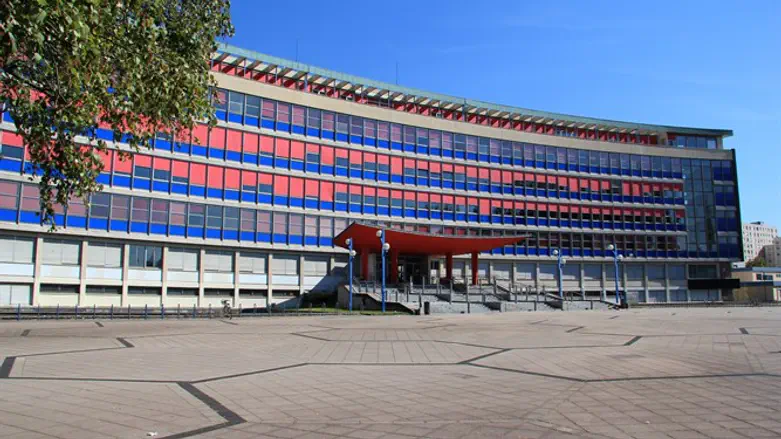
Bar-Ilan University and the University of Strasbourg (Unistra) in France have signed an agreement to offer the first joint MSc in Chemoinformatics between an Israeli and French university. It is also the first joint master’s degree with a foreign university that Bar-Ilan University has established.
“A joint degree is a great way to combine forces and offer students the best possible education in their area of interest,” said Prof. Hanoch Senderowitz, head of the Chemistry Department at Bar-Ilan University, “and we are honored to be able to partner with Unistra in this new and exciting endeavor."
“This program will expose students to new ideas, new scientific paradigms, new ways of conducting research, and in general, new ways of doing science, while also exposing them to experts in the field of research that they wouldn’t have had from only one university,” he said.
Students will spend their first year of the master’s program at their home university and the second at the partner university. The program is not limited to French and Israeli students. Any student registered for this degree at either university will be able to participate in the program. The degree will be taught entirely in English.
“Chemoinformatics is a young scientific field at the intersection of computer science and chemistry,” said Prof. Alexandre Varnek, head of the Chemoinformatics Lab and director of the MSc in Chemoinformatics at Unistra. “There are very few universities offering educational programs in this field. In Strasbourg, we have been running the MSc in Chemoinformatics since 2001 and it is a well-established and highly-reputed international program.”
According to Prof. Varnek the university has similar joint-degree agreements with six other universities in Europe, including Ljubljana, Lisbon, Milan, Kiev, Kazan, and St. Petersburg.
“We believe that the presence of top-quality students from a variety of different countries significantly improves the overall level of the group,” he said. “In addition, each partner university will benefit from sharing their experience in teaching and research, while students and researchers get to exchange ideas that lead to launching common research projects and future opportunities to work together.”
Prof. Senderowitz reiterates this outlook. “On a practical level, students get to know experts in their field who will eventually be the ones who peer-review their manuscripts and evaluate their grant proposals. These experts organize conferences in the various fields of research and graduates of the program may be invited to participate in these conferences where networking takes place and connections are made. In short, this increases our students’ international visibility and reputation,” he said.
These networking opportunities are how these two professors, who are running the program, met and how this joint degree came about.
“I was invited to participate and lecture in some of the conferences organized by Prof. Varnek and was also a visiting professor in Strasbourg for a few weeks lecturing in chemoinformatics as part of a course he taught,” said Prof. Senderowitz. “Over the years, we became friends and the idea to establish the joint degree was first conceived in 2016 when both of us participated in a conference in Japan.”
The two professors have also organized a few French-Israeli workshops in chemoinformatics, which became very popular events in the international community in this field.
Speaking about the added benefits of this partnership, Prof. Varnek said, “Not only will this joint degree reinforce the international standing and image of both universities, but as Strasbourg and Ramat Gan are twin cities, we believe it will also become an important element of cultural and scientific exchange between our cities and countries.”
Apart from the exceptional educational aspect of this partnership, as students who are enrolled in the joint degree get a chance to spend a year in either the city of Strasbourg or the Tel Aviv metropolitan area with many travel options in both countries, there will be many opportunities to experience new and different worlds.
Students will learn about the cultures and traditions of these two diverse, rich, and exciting countries, build bridges that connect different people from all over the world, become ambassadors of their universities and countries, and generally have a great time.